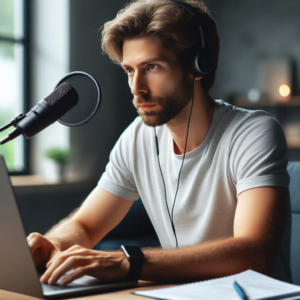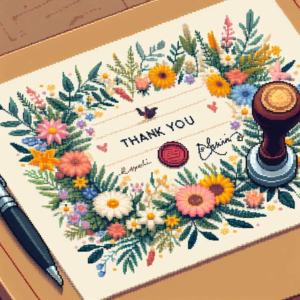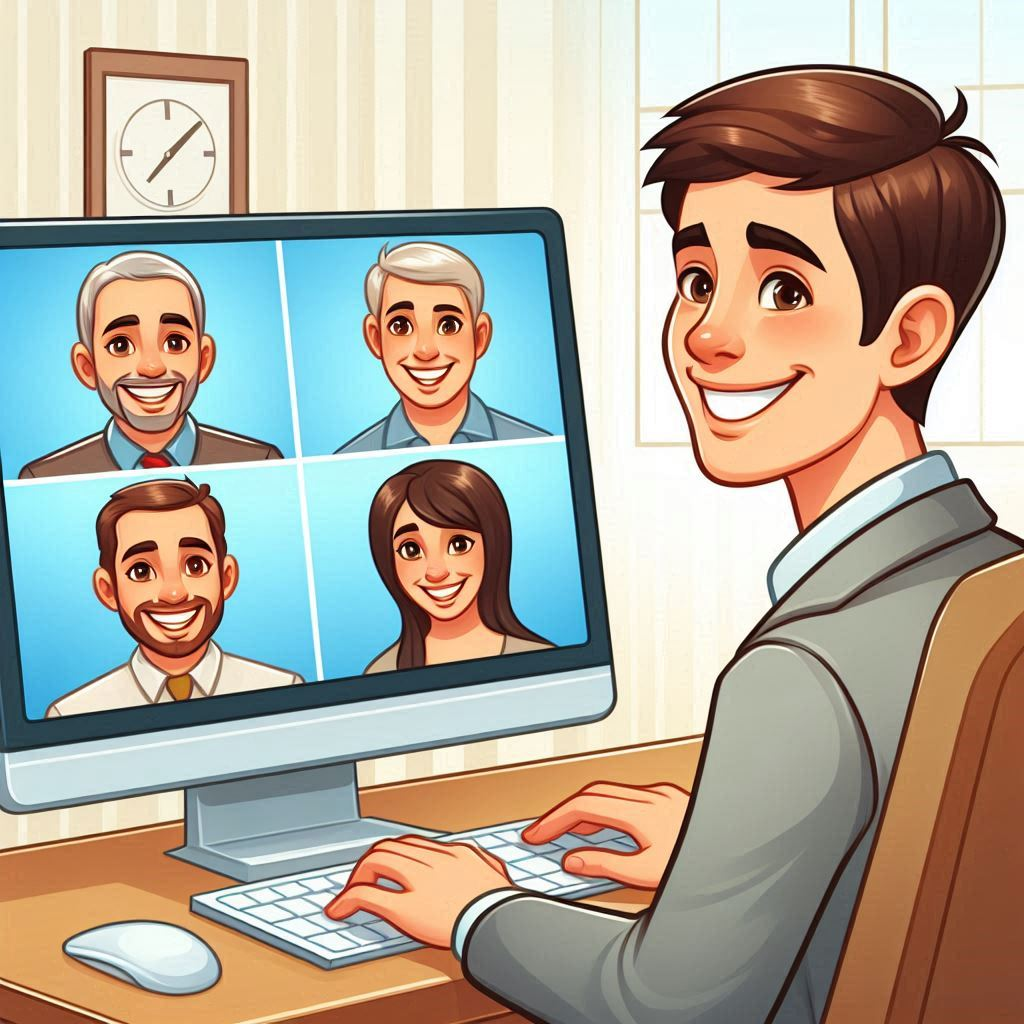Going into a job interview, you’ve likely made the preparations by researching the company and practicing answering common questions. But beyond these standard interview preparations, there are some little things that you can do to make you stand out even more during the interview. Many candidates aren’t aware of them so when you do them, you can make a powerful impression on hiring managers and differentiate you in their minds.
In this post, I’ll talk about these overlooked interview tips that will give you an edge to help you land your dream gig — you won’t find this stuff in your typical interview prep guides!
Note: these tips are heavily geared toward virtual tech role interviews, but they can also apply to in-person interviews.
(this post contains affiliate links)
A journey to the mind of the interviewers
I want you to start by thinking from the perspective of the interviewers. What exactly are they seeking in the interview?
They’re of course, looking for that best person for the job, but because they’ll be working with this person, they also want to find a good teammate, someone who’s pleasant to work with and makes the team better.
With that in mind, these tips will help you show that you’re the person they’re looking for.
The tips
Look and sound presentable
The tech industry has a reputation for being a bit casual, which is why I’m not necessarily talking about how you dress yourself. Just wear something comfortable, well-fitting, and appropriate.
What I am talking about is your video and audio quality in virtual interviews. In-person interviews offer more context for how people interact, but in a virtual interview, interviewers can only rely on what they see and hear from you, so make them as good as you can:
- use stable and fast internet
- do the interview in a quiet room
- if your room is messy, use a virtual background
- invest in a good microphone (possibly a webcam too)
- double-check video and audio quality before the interview

Out of everything I just listed, I think audio quality is the most important element in the video interview – even if you have the best answers, they will be useless if the interviewer can’t hear you, so be sure to use your best mic and choose it as the audio input (choosing the wrong audio input is a common mistake). You can do a final mic check by asking the interviewers to confirm that they can hear you loud and clear.
When I am on my desktop computer, I use a Blue Yeti Microphone with a generic pop filter which is nice, while Mrs. Chuy uses the HyperX Quadcast S, you know, the colorful one that gamers and podcasters like to use – so fancy! When I am on my laptop, I use the Bose Noise Cancelling 700 which doesn’t have a mic as nice as the Yeti, but it blocks out all the noise, which is noice.
Show up a little earlier
When I interview candidates, I’d often arrive a few minutes early to prepare for the meeting. If the candidates are already there waiting for me, it leaves a good impression even if we don’t end up interacting. I’m not sure why this is, but it may be because they seem more enthusiastic about the role.
I am talking about showing up a little earlier, like 3-5 minutes. And you don’t have to do anything special – if any interviewers show up and see you, they will probably just say hello and ask you to wait for everyone to be present before getting started, but deep inside, they are probably glad that you are on time and ready to go.
Eye contact

When I was interviewing at a company in 2020, I had a video meeting with a recruiter who seem to look at me directly as she talked to me, and I still remember it to this day. It reminded me of the pre-COVID-19 in-person meetings, where you look at someone directly to show respect and communicate effectively. It was memorable because I don’t recall too many people with this much eye contact in a video interview.
The reason is simple: when you’re in a video interview, you tend to look at people’s faces on the computer screen, but the people on the other end will see you looking down. That’s because most people’s webcams are located to the top of the screen, like on a laptop. Don’t even get me started with those with multiple monitors – sometimes they switch their focus between their monitors so much, it’s like they are not paying attention.
To make people think that you are looking directly at them, you look at the camera instead of the screen. It can be awkward at first, but with some practice, it will feel very natural. I actually have a webcam called Center Cam which is a small, high-definition camera that can be placed in the middle of the screen, so I can look at both the person and the camera at the same time (the built-in mic of that camera is terrible though, don’t choose it as your audio input).
Just to be clear, I don’t mean you should stare directly into the camera the entire time, which would be tiring and a little unsettling. You should maintain eye contact in a way that is similar to how you would in an in-person meeting.
Mind your camera and mic
In a virtual interview, it’s easy to forget that your camera and mic are on — and say or show something regrettable. So it pays to be a master of your camera and mic:
- control your facial expressions as much as you can. Interviewers might see that slight eye-roll and take offense.
- wear pants in case you need to stand up
- mute your mic to hide noises (curse words, siren, burp, farts, baby crying, or any other unpleasant sounds)
- don’t forget to unmute your mic afterward
Pause. A lot.
I once agreed to help someone with a mock job interview. The candidate was well-prepared, but she spoke very fast and the answers were very detailed and long, and it was hard to interrupt her and keep the conversation moving. I was even so focused on finding an opening to interrupt that I stopped paying attention to what she was saying. Eventually, we ran out of time.
Interviewers have a limited amount of time to get information from the candidate. Once they have enough information from a response, they might want to move on to ensure the interview doesn’t run long. So speak at a normal pace and take some pauses between your answers, as this will give interviewers (especially introverted types like me) a chance to interrupt without feeling rude. You can make it even more obvious by asking them for confirmations like “Shall I continue?” or “Any questions?” Your interviewers will appreciate you for that!
Keep your answers brief
Like the pauses, concise answers show respect for the interviewers’ time. They’ll ask you follow-up questions if they want more details.
Don’t be boring – tell your story!
As an occasional interviewer, I find most interviews very boring. Many candidates are nervous and overly rigid when they answer questions, which can make their answers sound rehearsed and uninspiring.
Knowing this, if you want to stand out, it’s actually quite simple: just make your answers not boring. Tell a story with emotions, imagery, and a little bit of humor. You don’t need to be an extrovert to do this – just learn good storytelling and then practice a lot (by the way, many performers are introverts, see Daniel Tosh, a comedian who has social anxiety).
Don’t be afraid to share your personality, but generally, you want to be mostly positive. Try to avoid coming across as angry, depressed, or overly negative.
As a reminder though, keep your stories short and pause a lot.
Ask questions

I am not talking about asking questions at the end of the interview (although that is very important!). I am talking about asking questions throughout the interview, to:
- make sure you understand what is being asked
- ask for clarification if something is confusing
- ask for context (aka “requirements” in the tech industry) if context is missing
- if you have a long-winded answer, take pauses to ask the interviewers if it is ok to continue (see the previous section “Pause. A lot.”)
- in coding challenges or technical questions, ask the interviewers for feedback so you don’t go too far into the wrong path
Asking clarifying questions during an interview shows that you’re a great communicator. When someone asks you to do something in real life, you’ll want to know what the request is about and why you’re doing it before you get started, so it makes sense that you’d ask a lot of questions during the interview. Most interviewers don’t mind if you ask questions and may even welcome it, as long as the questions are relevant and you don’t ask too many.
If you don’t know something, admit it
If the interviewers ask you something that you don’t know, you can do one of the following:
- Pretend that you know it
- Say you don’t know
If you’d rather make up an answer, you’d better be an amazing storyteller. Otherwise, the interviewers will know you’re lying and it hurts your credibility. Plus, you’re wasting their time if you keep dragging on the topic.
On the other hand, you can be honest and say you don’t know something. It is totally ok to say that, because nobody knows everything! Interviewers will usually understand and move onto another question.
No, it’s ok to disagree
It’s okay to disagree with an interviewer. If they get something wrong or if you think there’s a better solution to a problem, tell them. Good interviewers don’t want yes-men, they want someone with the expertise to contribute and the courage to make the workplace better, so show them what you’ve got.
Thank you note…?
After the interview is over, some recruiters recommend writing a thank-you note to the interviewers. I don’t always do this, but I can understand the argument that if there are 10 candidates and only 1 sends a thank you note, that 1 candidate will stand out a bit more.

The best practice with the thank you note is that you should make it a bit more personalized. So instead of a generic “Hi Sam, it was nice meeting you today. I enjoyed our interview and hope to hear back from you soon!”, maybe something like this:
Dear Sam,
Thank you for taking the time to interview me yesterday for the marketing manager role. I truly enjoyed our conversation and appreciated your insights into XYZ company’s innovative marketing campaigns.
I was particularly struck by the story you shared about that crisis communications situation – having been through something similar myself, I could really relate! Moments like that gave me a great sense of the fast-paced, solutions-driven culture at XYZ.
I remain incredibly enthusiastic about this opportunity and feel my skills and experience would be an excellent match. I look forward to hopefully continuing our discussions.
Sincerely, Chuy Smith
Either send a personalized thank you note, or not send one at all. Ask AI to help you write it if you need to (I used Claude to write the example thank you note).
The bottom line
As you can tell, the common theme of these tips is to make the interviewers feel good. Respect their time and interview format, give them an appropriate level of eye contact, help them understand you and vice versa, and give them a warm and personalized thank you note after the interview. When you make a good impression on interviewers, they’ll want to work with you, which makes it more likely that you’ll get a job offer!
If you have any other tips, please leave a comment.


One response to “Overlooked interview tips that get you hired in a virtual interview”
hatch-tastic writing, as always! I learned so much from this post.